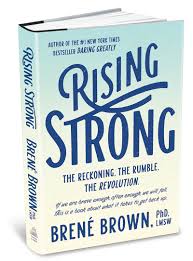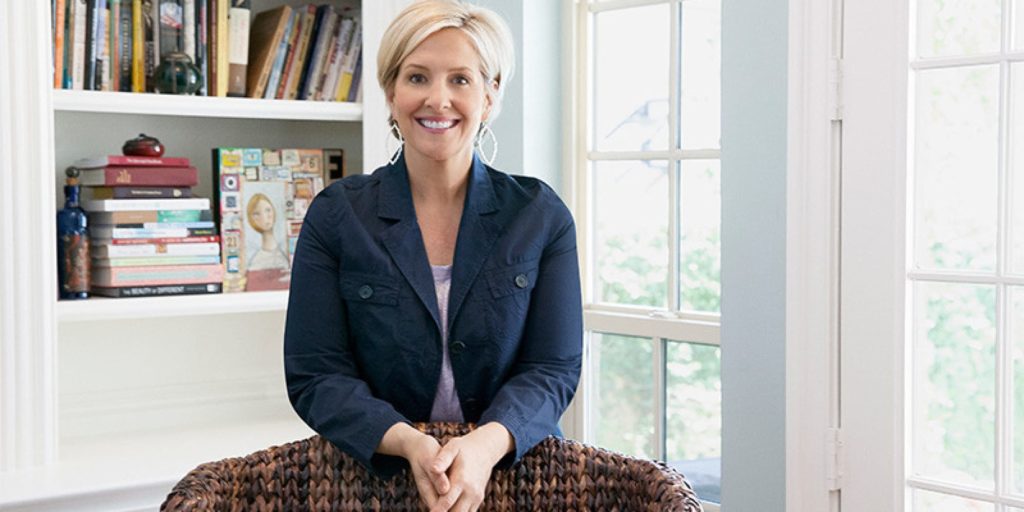The bad news: research shows that addiction is a chronic disease and like other chronic diseases, relapse is a real possibility. The good news: that doesn’t mean you will relapse, but if you do, you can learn from it and move forward with resiliency and courage. 
The Only Way Out Is Through
No one likes that answer. Life would be much easier if we could just skip all those uncomfortable feelings and unveilings of the parts of us we pretend aren’t there — and put a lot of hard work into making sure no one else does either. What Dr. Brown has learned in her more than 13 years of research on vulnerability, courage, worthiness and shame is that in order to get to the other side of our darkest struggles, we have to look them directly in the eyes, ask them what purpose they’re serving and get our hands dirty digging deep into the soil that keeps them growing. In the process, we plant seeds of bravery, authenticity, honesty and resiliency. These are qualities that help us live a wholehearted, full life. It’s a process that can apply to just about any challenge — addiction, divorce, job loss, grief, rejection, disappointment, and “emotional hooks” like jealousy, self-righteousness, shame and resentment.
This Is How It Works
Rising Strong is a follow up to Dr. Brown’s No. 1 New York Times best-seller Daring Greatly and subsequent shame-resilience curriculum, The Daring Way™. The Daring Way™ treatment modality is used in a range of clinical, educational and professional settings and teaches us to “show up, be seen and live braver lives.” Rising Strong seamlessly picks up where Daring Greatly left off, teaching us that when we dare to show up and live authentically and bravely, we are bound to fall. That is a normal part of the process, and there are valuable lessons in it. Rising Strong largely centers on owning and rewriting the stories we carry around with us that get triggered by falls — big or small. It’s a three-part process:
- The Reckoning: Walking Into Our Story — We identify the storylines that run through our mind and may keep us stuck in shame and unworthiness. We take a closer look. Are they accurate? Are they helping us avoid something? How do they keep us hooked?
- The Rumble: Owning Our Story — In this phase, we allow ourselves to be vulnerable and honest about our stories. We let ourselves feel those difficult emotions underlying our narratives and take a hard look at what’s really going on.
- The Revolution: Writing a New Ending — With a new understanding of our stories and our tactics for offloading the feelings that accompany them, we write new, more accurate and objective stories. Those that come from a place that honors our inherent goodness and self-worth despite our falls.
How Rising Strong Comes to Life in Addiction Treatment
Deborah Okrina, LCSW, is a counselor at Promises P.A.T.H mental health and drug rehab in Texas. She is a certified facilitator for both The Daring Way™ shame-resilience curriculum and Rising Strong groups. Okrina leads weekly Daring Way groups and a monthly three-day intensive Rising Strong workshop at Promises P.A.T.H. Clients in her Rising Strong workshops go through the three-part process in real time. They choose a story that frequently plays in their heads — usually around addiction or relapse — and take it step-by-vulnerable-step through The Reckoning, The Rumble and The Revolution with the help of workbooks, process groups, journaling, videos, discussion and mindfulness techniques. Okrina believes the principals of Rising Strong offer invaluable relapse-prevention tools. She often tells clients, “You’re not going to be perfect. Even if you don’t have a full relapse, you are going to stumble. Perfection doesn’t exist in any realm.” She runs these workshops to prepare clients for those potential falls. They learn to pick themselves up, dust themselves off, and start all over again — without going back to square one — each time with more insight into their actions and bolstered resiliency and courage.
From Shame and Numbing to Courage in Recovery
These workshops can be a life-changing experience for recovering addicts who may feel crippling shame and regret around their past. “They learn that they can’t change what happened but they can change how they view what happened and how they view themselves,” Okrina says. Rising Strong addresses some re-occurring themes that people with addiction struggle with, such as grief, anxiety, shame, perfectionism, vulnerability, trust and boundary setting. Okrina says the workshops are particularly useful because clients explore how they get emotionally hooked by these feelings and how they “offload” this hurt by numbing with drugs or alcohol. Clients also learn about other offloading tactics outlined in Rising Strong, such as chandeliering (stuffing pain until it explodes in an inappropriate outburst or “power-over” situation), bouncing (anger, blame and avoidance to negate hurt or disappointment), stockpiling (stuffing emotions so tightly that they show up as physical pain or depression and anxiety), and fear of high-centering (refusal to recognize emotions for fear of getting stuck in them). The Rising Strong curriculum helps clients learn to pay attention to those offloading signs when they leave treatment and re-enter everyday life with its triggers and challenges. Knowing how to identify difficult feelings and the pull to offload through numbing or other mechanisms can help stop or curb a relapse before it happens. “Being able to recognize when they are emotionally hooked and having some tools around what to do — those two things are really simple but they are huge for people in recovery,” says Okrina. “You learn all these skills; they settle into your bones and you start living that way, and your whole life changes.”

